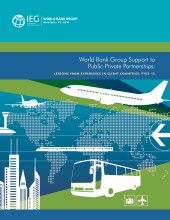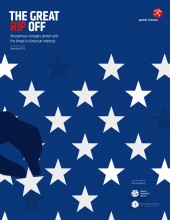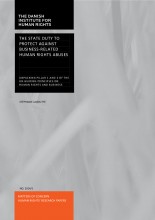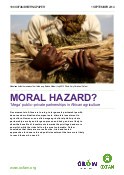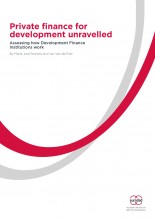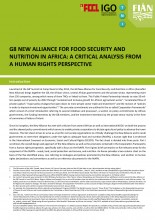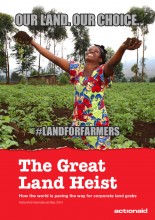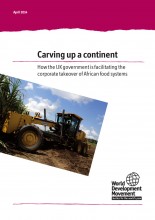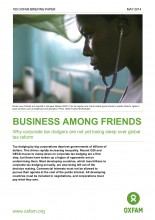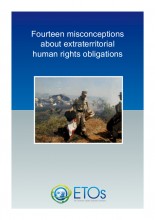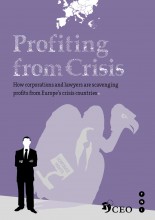Latest on Corporate Influence and Accountability (External) - Archive
Analyzing the World Bank’s support for public-private partnerships
Anonymous company owners and the threat to American interests
Unpacking Pillar 1 and 3 of the UN Guiding Principles on Human Rights and Business
"Mega" Agricultural public-private partnerships threaten livelihoods for African farmers
African governments are increasingly turning to partnerships with donors and multinational companies to stimulate investment in agriculture, after decades of neglect. Such public–private partnerships (PPPs) ‘at scale’ offer the allure of increased capital and technology, rises in productivity and foreign exchange earnings.
In this briefing paper Oxfam assesses the effectiveness and potential of these mega-PPPs as a vehicle for poverty eradication and rural livelihoods. There are three simple questions to ask of these initiatives: Who primarily benefits from them? Who shoulders [...]
Shining a light on the shadowy institutions giving public support to private companies and taking over the development agenda
Ahead of the G7 Summit in Brussels, FIAN raises human rights concerns about the G8 New Alliance initiative
Heidelberg/Germany, Geneva/Switzerland - May 16, 2014: Two weeks before the G7 Summit of June 4, 5 in Brussels, FIAN International raises grave human rights concerns about the G8 initiative "New Alliance for Food Security and Nutrition in Africa" in a policy paper published today.
Titled "G8 New Alliance for Food Security and Nutrition in Africa: A Critical Analysis from a Human Rights [...]

